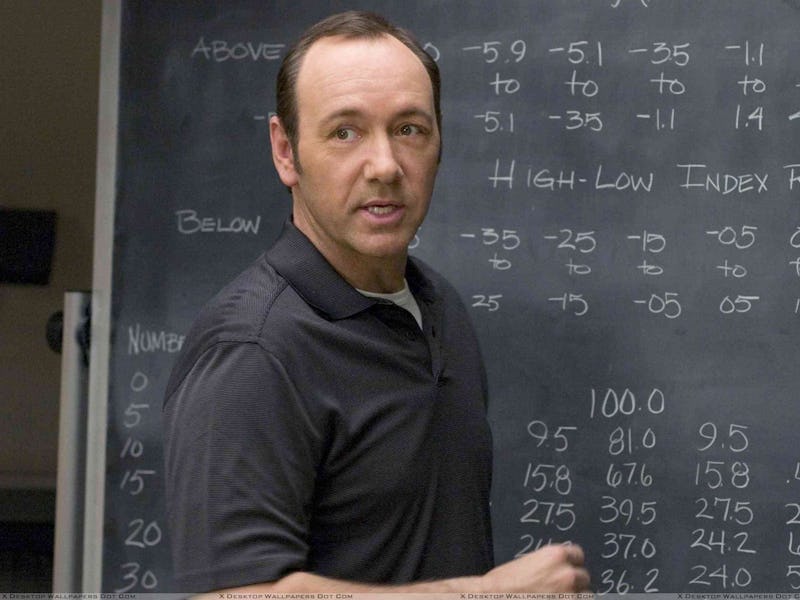What is Probability and Why Do People Struggle to Understand It?
The chances of you seeing this article were minimal, but not negligible.

Most humans don’t have a natural facility with probability. It’s not intuitive, like the ability to walk or talk. Learning the mechanics of chance takes time, but is less essential than, say, reading, so it falls further down the educational priority list and sometimes off of it altogether. After all, you can skate by without knowing a lick about odds. You just won’t do very well.
In his book The Blank Slate, the psychologist and author Steven Pinker argues that one of the major reasons people struggle with probability is that the language around it is overly scientific. When a layman hears a complicated dissection of what the odds of a certain event might be, they know what’s being discussed and how to interpret it, but they get lost in the hyper-specific language.
“When people hear these analyses, however, they are not reassured but become more fearful than ever — they hadn’t realized there are so, many ways for something to go wrong! They mentally tabulate the number of disaster scenarios, rather than mentally aggregating the probabilities of the disaster scenarios.”
This might have something to do with it, but it’s probably more straightforward than just being confused. Instead, we can probably lean on an old psychology concept to explain the difficulties of understanding probability: confirmation bias.
We all suffer from this problem. Confirmation bias is the reason we interpret events and actions not in terms of numbers that have a certain probability of occurring, but as evidence confirming an extant worldview. We ignore that, to some extent, there is a chance of everything occurring and not occurring in favor of a good story.
It’s why we think a sheer coincidence — like a band we like rolling into town on a week we happen to be there visiting, or hitting the jackpot at casino slot machines — are signs that the universe is smiling upon us. It’s why we might believe that running into a sour ex in a city of over a million, or being the victim of flyby bird pooping somehow signifies bad luck. There are a lot of birds and a million isn’t that big a number, it wasn’t bound to happen, buts odds were that it would.
And of course, there are ways in which humans do try to use probability to justify what’s happened in the world; they just don’t do it very well. Michael Shermer calls this “folk numeracy.” In a 2008 piece for Scientific American, Shermer wrote:
“Folk numeracy is our natural tendency to misperceive and miscalculate probabilities, to think anecdotally instead of statistically, and to focus on and remember short-term trends and small-number runs. We notice a short stretch of cool days and ignore the long-term global-warming trend. We note with consternation the recent downturn in the housing and stock markets, forgetting the half-century upward-pointing trend line. Sawtooth data trend lines, in fact, are exemplary of folk numeracy: our senses are geared to focus on each tooth’s up or down angle, whereas the overall direction of the blade is nearly invisible to us.”
Evolutionary biologist Richard Dawkins thinks this is a fallacy in our evolution, which he terms “Middle World.” It’s the tendency of our heads to grasp only things that exist in medium sizes. We can go outside and talk about the grass, the trees, the animals, and even the mountains. What we can’t do is describe the atoms or bacteria filling up the space all around us. We can’t describe how the universe is expanding millions of lightyears away. We have trouble considering that the universe is billions of year’s old and we have only been here for a fraction of a fraction of that timescale; nor can we accurately judge what happens from one nanosecond to another.
And that partly explains why we can’t grasp odds very well. When you consider the chances of, say, coming down with a specific illness as 1 million to 1, it seems impossible. Until you maybe realize that, in a city with a million people, that could be you. On the flip-side, those odds also mean it would be irrational to completely change your lifestyle or habits just to avoid contracting that illness, since those odds say it’s very unlikely.
Humans also play hard into the gambler’s fallacy — where if something happens once, we think the odds of it happening again increase dramatically. And there’s no reason to think so. Outcomes aren’t always meaningful predictors.
When you ask most people to predict the outcome of a series of 10 coin flips, they usually pick a seemingly random set of choices. That’s because they they know there’s a 50-50 chance of each flip occurring. But for some reason, they’re trying to “spread out” the outcomes over the 10 flips, so they usually hedge bets on five heads and five tails.
Ask mathematicians to do the same, they’ll almost always pick all heads or all tails. Why? Because there’s a 50-50 chance of each side occurring. So why even try to guess?
There is one great advantage to living in a world where people suck at probability, and that’s that you have a wide array of different perspectives on life. A human race of probability experts would probably result in the most efficiently run civilization possible. But it would be sorely lacking the zest that’s dumped on us by all the people we admire and loathe. What a time to be alive.